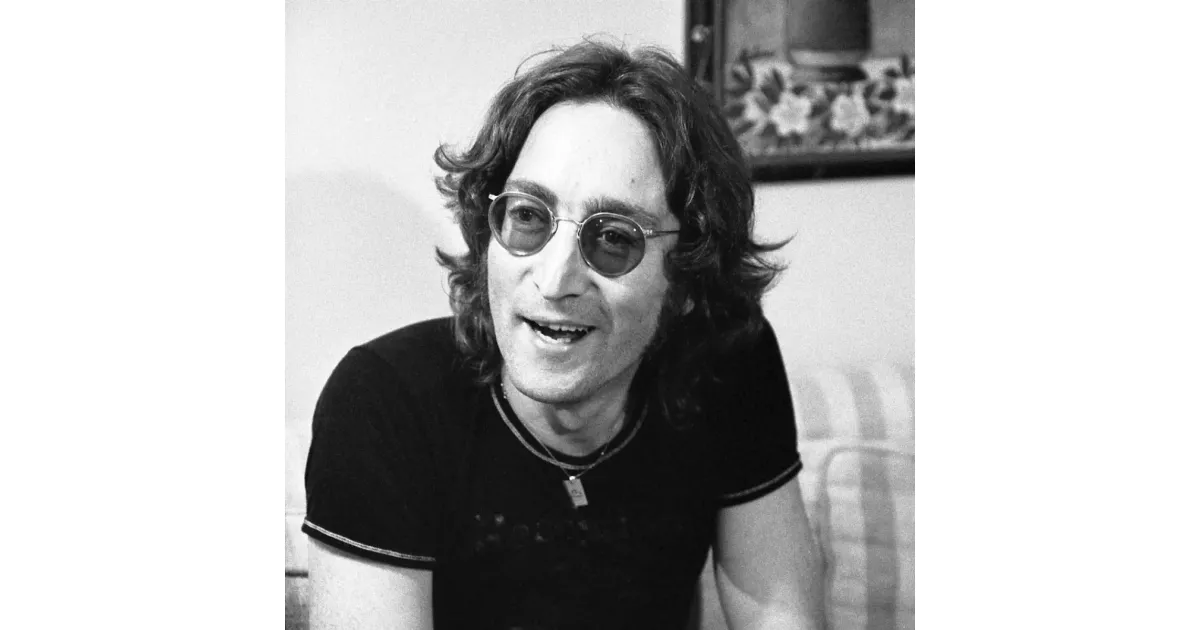John Lennon was a highly influential English singer-songwriter, musician, and peace activist. He achieved worldwide recognition as a founder, co-lead vocalist, and rhythm guitarist for the Beatles, one of the most successful and influential bands in music history. Lennon's songwriting collaboration with Paul McCartney is renowned as the most successful musical partnership of all time, producing a vast catalog of iconic and enduring songs. Beyond his musical achievements, Lennon used his platform to advocate for peace and social change, becoming a prominent voice for anti-war movements.
1917: Homage to Marcel Duchamp
In 1968, John Lennon created a ready made black bike (an apparent homage to Marcel Duchamp and his 1917 Bicycle Wheel) for his 'You Are Here' art exhibition.
October 1940: John Lennon's Birth
On October 9, 1940, John Winston Lennon was born at Liverpool Maternity Hospital to Alfred and Julia Lennon.
1940: John Lennon's birth
John Lennon was born in 1940.
February 1944: Father's Absence and Discontinued Support
In February 1944, Alfred Lennon went absent without leave, ceasing the regular pay cheques he had been sending to support John and his mother.
July 1946: Custody Decision
In July 1946, John Lennon's father took him to Blackpool, intending to emigrate to New Zealand. Julia followed, and after an argument, John chose to stay with his mother.
June 1955: Death of Uncle George
On June 5, 1955, John Lennon's uncle George died of a liver haemorrhage at the age of 52, impacting Lennon's family life.
September 1956: Formation of the Quarrymen
In September 1956, John Lennon, at the age of 15, formed the skiffle group called the Quarrymen, named after Quarry Bank High School.
1956: Formation of The Quarrymen
In 1956, John Lennon became involved in the skiffle craze and formed The Quarrymen as a teenager.
1956: First Guitar
In 1956, John Lennon's mother, Julia, bought him his first guitar, an inexpensive Gallotone Champion acoustic, setting the stage for his musical career.
1957: The Quarrymen's Performances
By the summer of 1957, The Quarrymen were performing a mix of skiffle and rock and roll, showcasing their spirited sets.
1957: Lennon meets Cynthia Powell
In 1957, John Lennon met Cynthia Powell, a fellow student, at the Liverpool College of Art. Powell dyed her hair blonde to emulate Brigitte Bardot, whom Lennon admired.
July 1958: Death of Julia Lennon
On July 15, 1958, Julia Lennon, John's mother, was killed by a car, deeply traumatizing the teenage John Lennon and greatly influencing his later creative works.
1960: The Quarrymen Evolved into The Beatles
In 1960, The Quarrymen evolved into the band that would become globally known as The Beatles.
1960: Formation of The Beatles
In early 1960, Lennon, McCartney, Harrison, and Sutcliffe became "The Beatles", marking the official start of the iconic band.
April 1961: Second Hamburg Residency
In April 1961, The Beatles accepted their second residency in Hamburg, continuing their musical development and performances.
November 1961: The Beatles meet Brian Epstein
In November 1961, The Beatles were introduced to Brian Epstein after a midday concert at Liverpool's Cavern Club. Epstein later became their manager.
April 1962: Third Hamburg Residency
In April 1962, The Beatles embarked on their third residency in Hamburg, further honing their skills and solidifying their lineup.
July 1962: Lennon proposes to Cynthia Powell
In July 1962, upon learning that Cynthia was pregnant, John Lennon proposed marriage, leading to their wedding.
October 1962: Release of "Love Me Do"
In October 1962, The Beatles released their first single, "Love Me Do", which reached No. 17 on the British charts.
1962: Hanratty Hanged
James Hanratty was hanged in 1962. Later, John Lennon and Yoko Ono would support efforts by the family of James Hanratty to prove his innocence.
February 1963: Recording of Please Please Me
On February 11, 1963, The Beatles recorded their debut album, Please Please Me, in under 10 hours. Lennon was suffering from a cold.
April 1963: Julian Lennon's birth
In April 1963, Julian Lennon was born while John Lennon was touring with the Beatles. His birth was kept secret to avoid threatening the Beatles' commercial success.
April 1963: Birth of Julian Lennon
On April 8, 1963, Julian Lennon was born to John Lennon and Cynthia Powell. John Lennon was away on tour with the Beatles at the time and did not see his son until three days later.
June 1963: Lennon attacks Bob Wooler at McCartney's birthday party
In June 1963, at Paul McCartney's twenty-first birthday party, John Lennon physically attacked Cavern Club master of ceremonies Bob Wooler after Wooler made a joke about Lennon's honeymoon with Epstein.
1963: "Hello Little Girl" Top 10 Hit
In 1963, "Hello Little Girl", a song written by John Lennon, became a UK top 10 hit for the Fourmost.
1963: Collaboration with McCartney on "I Want to Hold Your Hand"
In 1963, John Lennon's jamming on a piano with Paul McCartney led to the creation of The Beatles' first US number one hit, "I Want to Hold Your Hand".
1963: Recording of Please Please Me album
In 1963, during the recording of The Beatles' debut album, Please Please Me, Lennon's voice was compromised by a cold, particularly affecting the final track, "Twist and Shout". Lennon felt he was just screaming the song and strained his vocal cords. George Martin, The Beatles' producer, often used techniques like double-tracking to alter Lennon's voice at Lennon's request.
1963: Mainstream Success in the UK
The Beatles achieved mainstream success in the UK early in 1963. John Lennon was on tour when his first son, Julian, was born in April.
February 1964: US Debut on The Ed Sullivan Show
In February 1964, The Beatles made their historic US debut appearance on The Ed Sullivan Show, marking their breakthrough to international stardom.
1964: Acquisition of Mellotron Keyboard
In 1964, John Lennon became one of the first British musicians to acquire a Mellotron keyboard, though it was not heard on a Beatles recording until 1967.
1964: Publication of "In His Own Write"
In 1964, John Lennon's book "In His Own Write" was published, featuring a mix of short stories, poetry, plays, and drawings.
1965: Publication of "A Spaniard in the Works"
In 1965, "A Spaniard in the Works" was published. It formed the basis of the stage play The Lennon Play: In His Own Write, co-adapted by Victor Spinetti and Adrienne Kennedy.
1965: Lennon's "Help!" expresses his feelings
In 1965, John Lennon felt concerned that fans at Beatles concerts couldn't hear the music due to screaming, impacting the band's musicianship. His song "Help!" reflected his feelings. He also felt he was subconsciously seeking change and had put on weight. In March 1965, Lennon and Harrison unknowingly took LSD after a dentist spiked their coffee at a dinner party, leading to a frightening experience.
1965: Appointment as MBE
In 1965, Lennon was appointed Member of the Order of the British Empire (MBE) with the other Beatles.
1965: Appointed Members of the Order of the British Empire (MBE)
In 1965, The Beatles received recognition from the British establishment when they were appointed Members of the Order of the British Empire (MBE).
March 1966: Lennon's remark on Christianity
In March 1966, John Lennon remarked in an interview that Christianity would decline and the Beatles were more popular than Jesus. The comment, initially unnoticed in England, sparked outrage in the US when quoted months later, leading to record burnings, Ku Klux Klan activity, and threats against Lennon, influencing the band's decision to stop touring.
August 1966: Lennon films How I Won the War
After the Beatles' final concert on August 29, 1966, John Lennon filmed the anti-war black comedy "How I Won the War", marking his only appearance in a non-Beatles feature film.
November 1966: First Meeting with Yoko Ono
On 9 November 1966, John Lennon met Yoko Ono for the first time at the Indica Gallery in London. Ono was preparing her conceptual art exhibit, and Lennon was intrigued by her "Hammer A Nail" piece. Lennon wanted to hammer a nail into the board before the exhibit began, but Ono initially stopped him.
1966: This is Not Here (1966) part of Blue Room Event (1966)
In 1966, Lennon's 'You Are Here' show was conceived as a response to Ono's conceptual art piece 'This is Not Here (1966)' that was part of her Fluxus installation of wall text pieces called 'Blue Room Event (1966)'.
1967: Death of Brian Epstein
Brian Epstein, The Beatles' manager, passed away in 1967, marking a significant loss for the band.
1967: Funding of Ono's "Half-A-Room" Art Exhibition
In 1967, John Lennon anonymously funded and participated in Yoko Ono's art exhibition "Half-A-Room" held at Lisson Gallery.
1967: Release of "Strawberry Fields Forever" and Sgt. Pepper's Lonely Hearts Club Band
In 1967, John Lennon increased his LSD use, and his continuous use of the drug brought him close to erasing his identity. The year 1967 also saw the release of "Strawberry Fields Forever" and the Beatles' landmark album "Sgt. Pepper's Lonely Hearts Club Band", which revealed lyrics by Lennon that contrasted strongly with the simple love songs of the group's early years.
1967: Use of Mellotron on "Strawberry Fields Forever"
In 1967, the Mellotron keyboard, acquired by John Lennon in 1964, was first heard on a Beatles recording, "Strawberry Fields Forever".
1967: Cynthia Lennon's experience at Bangor
In 1967, when the group traveled by train to Bangor, Wales, for the Maharishi Yogi's Transcendental Meditation seminar, Cynthia Lennon was stopped from boarding by a policeman who did not recognize her.
February 1968: The Beatles travel to India
In February 1968, led by Harrison and Lennon's interest, the Beatles traveled to the Maharishi's ashram in India for further guidance. While there, they composed most of the songs for their double album "The Beatles".
May 1968: Lennon and Ono's Night Recording
In May 1968, while Cynthia Lennon was on holiday, John Lennon invited Yoko Ono to visit his home. They spent the night recording what would become the "Two Virgins" album and, according to Lennon, "made love at dawn".
November 1968: Ono's Miscarriage
In November 1968, a few weeks after John Lennon's divorce from Cynthia Lennon was granted, Yoko Ono miscarried a male child on 21 November 1968.
November 1968: Divorce of John Lennon and Cynthia Powell finalized
In November 1968, the divorce case between John Lennon and Cynthia Powell was settled out of court, with Lennon granting her £100,000, a small annual payment, and custody of Julian.
1968: Recording experimental music with Ono
Between 1968 and 1969, John Lennon and Yoko Ono recorded three albums of experimental music together: Unfinished Music No. 1: Two Virgins, Unfinished Music No. 2: Life with the Lions and Wedding Album.
1968: Opening of "The Lennon Play: In His Own Write"
In 1968, "The Lennon Play: In His Own Write" opened at The Old Vic. John Lennon and Yoko Ono attended the opening night performance, their second public appearance together.
1968: Formation of ABKCO Industries
In 1968, Allen Klein formed ABKCO Industries as an umbrella company to ABKCO Records.
1968: 1968 comic drawing
In 1968, John Lennon drew a comic for the macrobiotic magazine Harmony.
1968: Release of "Julia"
In 1968, The Beatles released the song "Julia", written by John Lennon as a tribute to his deceased mother, Julia Lennon.
1968: Formation of International Marxist Group
In 1968, the International Marxist Group, a Trotskyist group, was formed in Britain. According to FBI surveillance reports, John Lennon was sympathetic to them.
1968: The White Album photo collage creation
In 1970, Lennon made The Complete Yoko Ono Word Poem Game where he used the portrait photo of himself that was included in the packaging of the 1968 The Beatles LP (aka The White Album) and cut it into 134 small rectangles to be reassembled in any order.
1968: You Are Here Art Exhibition
In the summer of 1968, John Lennon began showing his painting and conceptual art at his You Are Here art exhibition held at Robert Fraser Gallery in London. The show, that was dedicated to Ono, included a six foot in diameter round white monochrome painting called You Are Here (1968).
March 1969: Lennon and Ono's marriage and "Bag One" release
On March 20, 1969, John Lennon and Yoko Ono married and soon released a series of 14 lithographs called "Bag One" depicting scenes from their honeymoon, eight of which were deemed indecent and mostly banned and confiscated.
April 1969: Name Change Ceremony
On 22 April 1969, John Lennon changed his name by deed poll, adding "Ono" as a middle name. The brief ceremony took place on the roof of the Apple Corps building.
September 1969: Lennon leaves the Beatles
On September 20, 1969, John Lennon left the Beatles, but agreed not to inform the media while the group renegotiated their recording contract.
1969: May Pang Hired by ABKCO
In 1969, Allen Klein hired May Pang as a receptionist in ABKCO.
1969: Appearance in Self-Portrait Art Film
In 1969, John Lennon appeared in Yoko Ono's Fluxus art film "Self-Portrait", consisting of a single forty-minute shot of Lennon's penis, premiered at the Institute of Contemporary Arts.
1969: Wedding Album drawings
In 1969, John Lennon drew fine art prints inside the sleeve of his Wedding Album.
1969: Formation of Plastic Ono Band and Bed-In for Peace
In 1969, John Lennon started the Plastic Ono Band with Yoko Ono, held the two-week-long anti-war demonstration bed-in for peace, and left the Beatles to embark on a solo career.
1969: Lennon Writes Skit for "Oh! Calcutta!"
In 1969, John Lennon wrote "Four in Hand", a skit based on his teenage experiences, for Kenneth Tynan's play "Oh! Calcutta!"
1969: Allen Klein appointed as Apple's chief executive
In early 1969, Allen Klein was appointed as Apple's chief executive by John Lennon, Harrison and Starr, but McCartney never signed the management contract.
January 1970: Bag One Lithographs Exhibition
On 15 January 1970, John Lennon's "Bag One" lithographs exhibition opened at Eugene Schuster's London Arts Gallery. The show was raided by police officers 24 hours later, who confiscated 8 of the 14 lithos on the grounds of indecency.
April 1970: McCartney publicises his departure
In April 1970, John Lennon was outraged that McCartney publicized his own departure on releasing his debut solo album.
June 1970: GRAPEFRUIT FLUXBANQUET
From 18 April to 12 June 1970, John Lennon and Yoko Ono presented a series of Fluxus conceptual art events and concerts at Joe Jones's Tone Deaf Music Store called GRAPEFRUIT FLUXBANQUET.
September 1970: Lennon and Ono undergo primal therapy
Between April and September 1970, John Lennon and Yoko Ono underwent primal therapy with Arthur Janov in London and Los Angeles. Primal therapy aims to release emotional pain from early childhood.
December 1970: Lennon's interview with Rolling Stone
In a December 1970 interview with Jann Wenner of Rolling Stone magazine, John Lennon revealed his bitterness towards McCartney.
1970: Beatles Break-Up
Following the Beatles' break-up in 1970, John Lennon remained consistently friendly with Ringo Starr, but his relationships with Paul McCartney and George Harrison varied.
1970: Break-up of The Beatles
The Beatles officially broke up in 1970, marking the end of an era for the iconic band.
January 1971: Lennon writes "Power to the People"
In January 1971, Tariq Ali's revolutionary political views inspired John Lennon to write "Power to the People", reversing his non-confrontational approach from "Revolution".
August 1971: Lennon and Ono move to New York
In August 1971, John Lennon and Yoko Ono moved to New York and embraced US radical left politics.
1971: Lennon Moves to the US
After moving to the US in 1971, John Lennon's relationship with George Harrison began to drift apart.
1971: Creation of "Erection" Experimental Art Film
In 1971, John Lennon made an experimental art film called "Erection", edited on 16 mm film by George Maciunas. The film uses the songs "Airmale" and "You" from Ono's 1971 album "Fly" as its soundtrack.
1971: Release of Imagine album
In 1971, eager for commercial success, John Lennon released the album "Imagine". The album's title track later became an anthem for anti-war movements, while the song "How Do You Sleep?" was a musical attack on McCartney. Lennon addressed his demeaning treatment of women in "Jealous Guy".
1971: Lennon's Ties with London Anti-War Activists
In 1971, the final 10 documents in John Lennon's FBI file reported on his ties with London anti-war activists. These documents were later released in December 2006.
February 1972: Nixon Administration's Attempt to Deport Lennon
In February 1972, Republican Senator Strom Thurmond suggested that the Nixon administration should deport John Lennon as a "strategic counter-measure" against his anti-war activities which Nixon believed could cost him his reelection.
August 1972: Benefit concerts at Madison Square Garden
On August 30, 1972, John Lennon and Yoko Ono gave two benefit concerts with Elephant's Memory and guests in New York in aid of patients at the Willowbrook State School mental facility at Madison Square Garden, which were his last full-length concert appearances.
1972: Bloody Sunday and Protest Songs
Following the Bloody Sunday incident in Northern Ireland in 1972, John Lennon and Yoko Ono wrote two songs protesting British presence and actions in Ireland for their Some Time in New York City album: "The Luck of the Irish" and "Sunday Bloody Sunday".
1972: Release of Some Time in New York City
In 1972, John Lennon and Yoko Ono released "Some Time in New York City", a collaboration with the New York band Elephant's Memory, featuring songs about women's rights, race relations, Britain's role in Northern Ireland, and Lennon's green card difficulties.
1972: Contribution to Gay Liberation Book
In 1972, John Lennon contributed a drawing and limerick titled "Why Make It Sad to Be Gay?" to Len Richmond and Gary Noguera's "The Gay Liberation Book".
1972: Lennon stood up to Nixon
In 1972, John Lennon stood up to US President Nixon.
March 1973: Lennon Ordered to Leave the US
On 23 March 1973, John Lennon was ordered to leave the US within 60 days, while Yoko Ono was granted permanent residence.
April 1973: Formation of Nutopia
On 1 April 1973, John Lennon and Yoko Ono held a press conference at the New York City Bar Association, announcing the formation of Nutopia, described as a place with "no land, no boundaries, no passports, only people," and requesting political asylum in the US.
November 1973: Release of Mind Games and contributing to Ringo album
In November 1973, John Lennon and Yoko Ono decided to separate, and Lennon released "Mind Games", credited to the "Plastic U.F.Ono Band". Lennon also contributed "I'm the Greatest" to Starr's album Ringo.
1973: Separation from Yoko Ono
From 1973 to 1975, John Lennon and Yoko Ono were separated, during which time he produced Harry Nilsson's album Pussy Cats and collaborated with Elton John and David Bowie.
1973: Move to The Dakota
In 1973, John Lennon and Yoko Ono relocated to the Dakota building overlooking Central Park in New York City for better security.
1973: Julian visits John in Los Angeles
In 1973, Julian and his mother visited John Lennon in Los Angeles, where they went to Disneyland. Julian started to see his father regularly, and Lennon gave him a drumming part on a Walls and Bridges track.
1973: Beginning of the "Lost Weekend"
In 1973, Yoko Ono suggested that May Pang begin a physical relationship with John Lennon, leading to an 18-month period Lennon later called his "lost weekend."
October 1974: Release of "Walls and Bridges" album
In October 1974, John Lennon released the album "Walls and Bridges", which featured "Whatever Gets You thru the Night" with Elton John and became Lennon's only solo single to top the US Billboard Hot 100 during his lifetime. Another single, "#9 Dream," was also released from the album.
December 1974: Harrison's Plea to Ford
In December 1974, George Harrison visited the White House and asked President Gerald Ford to intercede in John Lennon's deportation case.
December 1974: Dark Horse tour Incident
In December 1974, during George Harrison's Dark Horse tour in New York, John Lennon agreed to join him on stage but failed to appear after an argument over Lennon's refusal to sign an agreement to dissolve the Beatles' legal partnership.
1974: Joint Recording with McCartney
In 1974, John Lennon and Paul McCartney recorded music together, later bootlegged as "A Toot and a Snore in '74", before eventually growing apart once more.
1974: Alcohol-fueled incidents and producing Nilsson's album
In early 1974, John Lennon was drinking heavily. In March 1974, two incidents occurred at The Troubadour club: Lennon stuck an unused menstrual pad on his forehead and scuffled with a waitress, and Lennon and Nilsson were ejected from the same club after heckling the Smothers Brothers. Lennon decided to produce Nilsson's album Pussy Cats. In April 1974, Lennon had produced the Mick Jagger song "Too Many Cooks (Spoil the Soup)".
January 1975: Elton John's "Lucy in the Sky with Diamonds" tops Billboard chart featuring Lennon
In January 1975, Elton John's cover of "Lucy in the Sky with Diamonds", featuring John Lennon, topped the US Billboard Hot 100 singles chart. Lennon was credited on the single as "Dr. Winston O'Boogie".
February 1975: Reunion with Ono
In February 1975, John Lennon agreed to meet Yoko Ono, who claimed to have found a cure for smoking. After the meeting, Lennon did not return home and later told Pang that his separation from Ono was over, although Ono would allow him to continue seeing Pang as his mistress.
October 1975: Birth of Sean Ono Lennon
On 9 October 1975, John Lennon's 35th birthday, Sean Ono Lennon was born. John agreed to become a househusband, which he agreed to do.
1975: Career Break
From 1975 until shortly before his death, John Lennon took a career break and was content to sit back as long as Paul McCartney was producing what Lennon saw as mediocre material.
1975: Reunion with Yoko Ono
In 1975, John Lennon reunited with Yoko Ono after a separation that began in 1973.
1975: Deportation Order Overturned
In 1975, the deportation order against John Lennon was overturned.
April 1976: SNL Reunion Offer
During Paul McCartney's final visit in April 1976, John Lennon watched the episode of Saturday Night Live with Lorne Michaels' offer of $3,000 for the Beatles to reunite on the show.
1976: Lennon's last recording session before hiatus
In 1976, John Lennon recorded "Cookin' (In the Kitchen of Love)" for Ringo Starr's album 'Ringo's Rotogravure' in June, marking his last recording session until 1980 during his five-year hiatus from the music industry.
1976: Lennon granted permanent residency in the U.S.
John Lennon was embroiled in a continuing legal battle with the immigration authorities, and he was denied permanent residency in the US, but in 1976 this issue was finally resolved and he was granted the residency.
January 1977: Lennon Attends Inaugural Ball
In January 1977, John Lennon and Yoko Ono attended the Inaugural Ball of President Jimmy Carter.
September 1980: Lennon's Comments About His Family
In September 1980, John Lennon made comments about his family and his rebellious nature, reflecting on his upbringing and personal identity.
October 1980: Release of "(Just Like) Starting Over"
In October 1980, John Lennon emerged from his hiatus and released the single "(Just Like) Starting Over", marking his return to the music industry.
December 1980: John Lennon's Death
John Lennon died on December 8, 1980. He was an English singer-songwriter, musician and activist.
December 1980: Support for Sanitation Workers
On 5 December 1980, John Lennon's last act of political activism was a statement in support of the striking minority sanitation workers in San Francisco. He and Ono planned to join the workers' protest on 14 December.
1980: Releases after Lennon's death
All releases after his death in 1980 use archival footage.
1980: Harrison's Autobiography
In 1980, George Harrison offended John Lennon with his autobiography, "I, Me, Mine", which Lennon felt made little mention of him and his influence.
1980: Lennon's Recollection of Meeting Yoko Ono
In 1980, John Lennon recalled his first meeting with Yoko Ono in November 1966. According to Lennon, Ono had not heard of the Beatles at the time, and he offered her an "imaginary five shillings" to hammer an imaginary nail into her art piece.
1980: Last recording session
In 1980, John Lennon resumed his music career after a five-year hiatus.
1980: Return to Studio and "Coming Up"
In 1980, John Lennon returned to the studio and took notice of Paul McCartney's "Coming Up", jokingly complaining that he could not get the tune out of his head.
1980: Return to Music and Death
In 1980, after a five-year hiatus, John Lennon returned to music with the album Double Fantasy, a collaboration with Yoko Ono. Tragically, he was shot and killed by Mark David Chapman three weeks after the album's release.
1980: John Lennon's death
John Lennon died in 1980.
January 1981: "Imagine" Hits Number One in the UK
In January 1981, following John Lennon's death, "Imagine" hit number one in the UK. Shortly after, "Woman", the second single from Double Fantasy, succeeded "Imagine" at the top of the UK chart.
1981: Grammy and Brit Award Wins
In 1981, Double Fantasy won the Grammy Award for Album of the Year, and John Lennon won the Brit Award for Outstanding Contribution to Music.
1981: Awards for Double Fantasy and Contribution to Music
In 1981, Double Fantasy won the Grammy Award for Album of the Year, and Lennon was given the BRIT Award for Outstanding Contribution to Music.
1983: Wiener Sues the FBI
In 1983, historian Jon Wiener sued the FBI with the help of the American Civil Liberties Union of Southern California, seeking the release of FBI files documenting the Bureau's role in the deportation attempt against John Lennon.
1984: Posthumous release of "Milk and Honey" album
In 1984, the album "Milk and Honey", which contained material recorded by John Lennon prior to his death, was released posthumously.
1987: Induction into Songwriters Hall of Fame
In 1987, Lennon was posthumously inducted into the Songwriters Hall of Fame.
1987: McCartney's Interview About Lennon
In a 1987 interview, Paul McCartney reflected on the Beatles' idolization of John Lennon, acknowledging him as a leader.
1988: Induction into Rock and Roll Hall of Fame (with The Beatles)
In 1988, John Lennon was inducted into the Rock and Roll Hall of Fame as a member of the Beatles.
1991: ACLU Wins Decision Against the FBI
In 1991, the ACLU, representing Jon Wiener, won a favorable decision in their suit against the FBI in the Ninth Circuit, regarding the release of John Lennon's FBI files.
April 1992: Justice Department Appeals to Supreme Court
In April 1992, the Justice Department appealed the decision to the Supreme Court regarding the release of John Lennon's FBI files, but the court declined to review the case.
1992: Publication of "Ai: Japan Through John Lennon's Eyes: A Personal Sketchbook"
In 1992, "Ai: Japan Through John Lennon's Eyes: A Personal Sketchbook", featuring Lennon's illustrations of Japanese words, was published.
1994: Induction into Rock and Roll Hall of Fame (Solo Artist)
In 1994, John Lennon was inducted into the Rock and Roll Hall of Fame as a solo artist.
1994: Induction into Rock and Roll Hall of Fame
In 1994, Lennon was posthumously inducted into the Rock and Roll Hall of Fame.
1994: Beatles Reunion and "Free as a Bird"
In 1994, the three surviving members of the Beatles reunited and began working on completing two of John Lennon's home recording demos. One of them was "Free as a Bird."
1995: Beatles Reunion and "Real Love"
In 1995, the three surviving members of the Beatles continued working on completing John Lennon's home recording demos and released "Real Love" as Beatles single.
1996: Release of film version of The Rolling Stones Rock and Roll Circus
John Lennon participated in The Rolling Stones Rock and Roll Circus at the end of 1968, which was a television special that was not broadcast at that time. A film version of this was released in 1996.
1997: Establishment of John Lennon Scholarships
In 1997, Yoko Ono and the BMI Foundation established an annual music competition programme and the BMI Foundation's John Lennon Scholarships for songwriters of contemporary musical genres to honour John Lennon's memory and his large creative legacy.
1997: Release of Lennon's FBI Files
In 1997, the Justice Department settled most of the outstanding issues outside court by releasing all but 10 of the contested documents in John Lennon's FBI file, respecting President Bill Clinton's rule that documents should be withheld only if releasing them would involve foreseeable harm.
1997: Induction into Songwriters Hall of Fame
John Lennon was inducted into the Songwriters Hall of Fame in 1997.
1998: Release of John Lennon Anthology
In 1998, two tracks from John Lennon's December 1971 performance at the "John Sinclair Freedom Rally" appeared on John Lennon Anthology.
1999: Publication of "Real Love: The Drawings for Sean"
In 1999, "Real Love: The Drawings for Sean" was published, featuring John Lennon's drawings for his son, Sean.
1999: "Imagine" wins BBC poll
In 1999, on National Poetry Day, a BBC poll identified "Imagine" as the UK's favourite song lyric.
January 2000: Publication of "Gimme Some Truth: The John Lennon FBI Files"
In January 2000, Jon Wiener published "Gimme Some Truth: The John Lennon FBI Files," containing facsimiles of documents related to the FBI's surveillance of John Lennon.
February 2000: Cousin's IRA Claim
In February 2000, John Lennon's cousin, Stanley Parkes, stated that the singer had given money to the IRA during the 1970s.
2000: Publication of The Beatles Anthology
In 2000, "The Beatles Anthology" was published. It presented examples of John Lennon's writings and drawings.
2002: Ranked in BBC's 100 Greatest Britons
In 2002, John Lennon was voted eighth in a BBC history poll of the 100 Greatest Britons.
2002: BBC Poll: Eighth of "100 Greatest Britons"
In 2002, a BBC poll voted John Lennon eighth of "100 Greatest Britons".
2002: Liverpool Airport Renamed
In 2002, the airport in Lennon's home town was renamed the Liverpool John Lennon Airport.
2003: Rolling Stone's "100 Greatest Singers of All Time"
In 2003, Rolling Stone ranked Lennon fifth of "100 Greatest Singers of All Time".
2005: Powell's memoir released
In 2005, Cynthia Powell released her memoir John, recalling incidents of Lennon's possessiveness and anger during their relationship. She recounted an instance where Lennon struck her after seeing her dance with another man.
December 2006: Release of Final FBI Documents
In December 2006, the final 10 documents in John Lennon's FBI file, which reported on his ties with London anti-war activists in 1971, were released.
2006: Confirmation of Lennon's Sympathies
In 2006, Tariq Ali confirmed FBI surveillance reports that John Lennon was sympathetic to the International Marxist Group.
2006: Release of "The U.S. vs. John Lennon"
In 2006, the documentary "The U.S. vs. John Lennon" was released, featuring footage from John Lennon and Yoko Ono's 1973 press conference.
2006: Guardian article on Lennon's courage
In a 2006 Guardian article, Jon Wiener highlighted Lennon's courage in standing up to US President Nixon in 1972 as a reason why people still admired him. Amaia Odriozola described Lennon's Windsor glasses as a "style statement" for musicians in 2024.
2007: Inclusion of 'Too Many Cooks' on Mick Jagger's album
In 1974, John Lennon produced the Mick Jagger song "Too Many Cooks (Spoil the Soup)" which was to remain unreleased for more than 30 years. Pang supplied the recording for its eventual inclusion on The Very Best of Mick Jagger in 2007.
2008: Rolling Stone Recognition
In 2008, Rolling Stone recognised Lennon in several reviews of artists and music, ranking him 38th of "100 Greatest Artists of All Time", and his albums John Lennon/Plastic Ono Band and Imagine, 22nd and 76th respectively of "Rolling Stone's 500 Greatest Albums of All Time".
2010: Unveiling of John Lennon Peace Monument
In 2010, on what would have been Lennon's 70th birthday, Cynthia and Julian Lennon unveiled the John Lennon Peace Monument in Chavasse Park, Liverpool.
December 2013: Crater on Mercury Named After Lennon
In December 2013, the International Astronomical Union named one of the craters on Mercury after Lennon.
2013: Downtown Music Publishing Agreement
In 2013, Downtown Music Publishing signed a publishing administration agreement for the US with Lenono Music and Ono Music, representing John Lennon's solo works, including songs like "Imagine", "Instant Karma (We All Shine On)", "Power to the People", "Happy Xmas (War Is Over)", "Jealous Guy", and "(Just Like) Starting Over".
2023: Release of "Now and Then"
In 2023, "Now and Then", a song worked on by the surviving members of The Beatles using a John Lennon demo, was released and topped the UK charts. It was dubbed "the last Beatles song".
2024: Lennon's glasses as a "style statement"
In 2024, Amaia Odriozola described Lennon's Windsor glasses as being "known all over the world" and credited him with pioneering glasses as a "style statement" for musicians.
2024: Guitar Found and Auctioned
In 2024, a guitar belonging to John Lennon, that was thought to have been lost, was found in an attic and auctioned at Julien's Auctions for $2.9 million (2.68 million euros).
Mentioned in this timeline
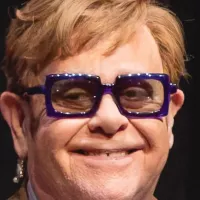
Sir Elton John is a highly successful British singer songwriter...

Bill Clinton served as the nd U S President from...
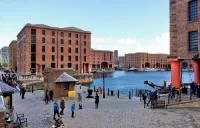
Liverpool is a port city and metropolitan borough located in...

The White House located at Pennsylvania Avenue NW in Washington...
Nigeria is a West African nation the most populous in...
California is a U S state on the Pacific Coast...
Trending
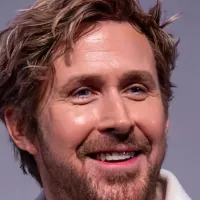
4 minutes ago Ryan Gosling finds right franchise fit with Star Wars: Starfighter after feeling unconvinced previously.
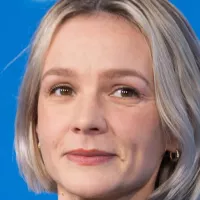
5 minutes ago Carey Mulligan on Narnia, Prada, and a Regretted Role Audition.
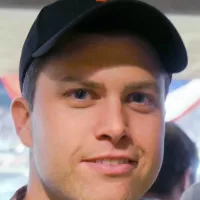
5 minutes ago SNL's Cold Open satirizes Trump's Iran stance and Khamenei aftermath with Colin Jost.
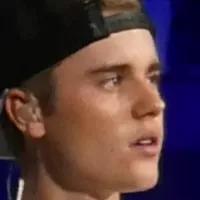
5 minutes ago Justin Bieber enjoys Lakers game, daps up LeBron before Coachella 2026 performance.
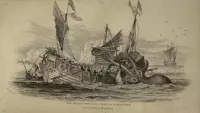
1 hour ago Seattle Kraken Seek Superstar, Navigate Trade Deadline, and Welcome Grubauer Back.
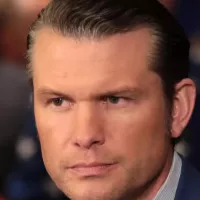
1 hour ago Hegseth Advocates Pentagon Severing Ties with 'Woke' Universities, Sparking Debate on Academic Influence.
Popular

Jesse Jackson is an American civil rights activist politician and...

Hillary Diane Rodham Clinton is a prominent American politician lawyer...

XXXTentacion born Jahseh Dwayne Ricardo Onfroy was a controversial yet...

Michael Joseph Jackson the King of Pop was a highly...

Kashyap Pramod Patel is an American lawyer who became the...

Barack Obama the th U S President - was the...
